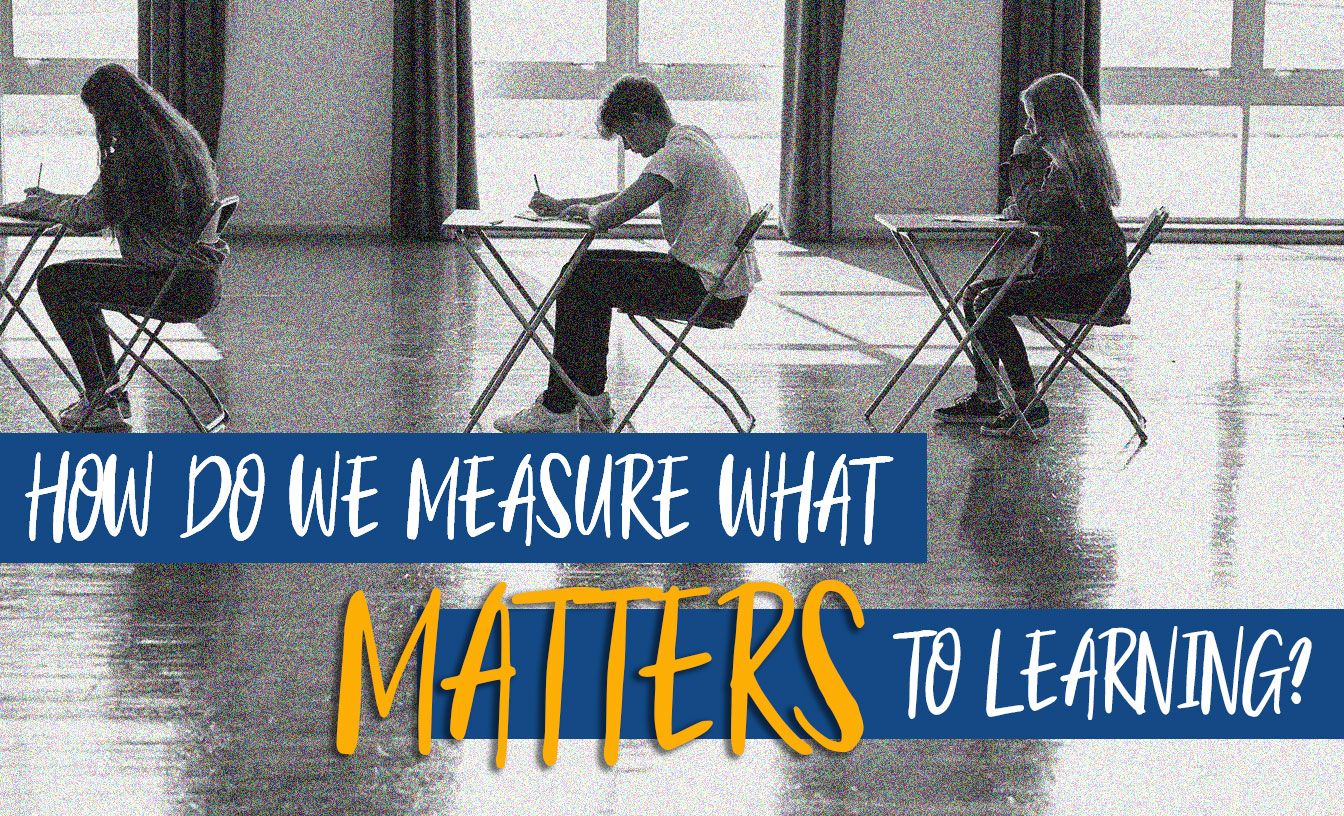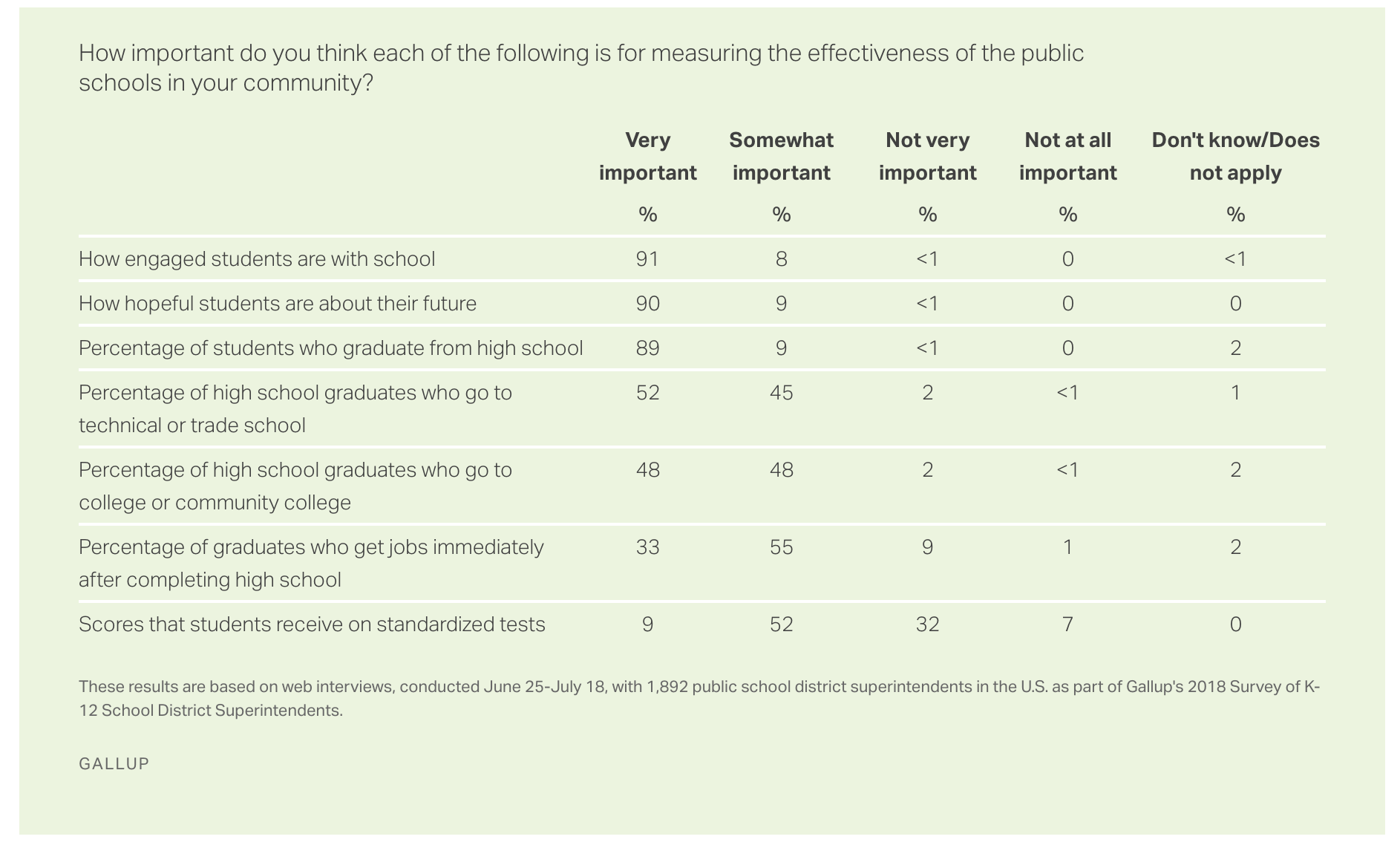So many measures of student success are calculated in test scores. But many school leaders now seem to doubt whether standardized scores measure whether schools are effective.
A recent Gallup poll found that nine in 10 of U.S. K-12 public school superintendents say that engagement with school, student hopes for the future, and graduation rates are very important measures of school effectiveness. But only 9% of those superintendents described standardized test scores in the same way.
The Gallup Poll underscores that school leaders, as well as other school stakeholders, agree that it is vital for schools to assess both academic and non-academic factors. But schools define, address, and evaluate non-academic skills differently— which may make it more challenging to assess or measure them. Just one in 10 teachers reported that their classroom assessments measure nonacademic skills “very well.”
There is clearly some disconnect between what schools value and what they actually measure. Just one in 10 superintendents say that standardized test scores are very important, and 7% say that test scores are not important at all. Yet on average, students spend 10 days taking district-mandated tests during the school year and nine days taking state-mandated tests, teachers estimate according to a study by the Center on Education Policy.
How does a school analyze non-academic measures like engagement or hope? If these characteristics predict whether students and schools will be successful in the future, how can teachers build the right conditions for engaged learning— when the test scores are still used to measure student and school progress?

We don’t have the answers. MIT is researching them; so is Johns Hopkins University; and movers and shakers in education policy are on the hunt. But while larger organizations explore systems that will start to align schools’ priorities with what they measure, we’re tackling student engagement on the individual scale.
At Back to Basics, we know that student learning doesn’t fit neatly into the boxes provided by a school district or state. That’s why our tutoring services are designed to be 1-on-1 and personalized to the individual needs of each student we see.
Our tutors get to know each student. We connect with teachers and parents to get a full picture of learning goals. And through building relationships with students, we address factors like confidence and low engagement that get in the way of student success.
“Thank you for the wonderful work you are doing with our son. We are thrilled to see his self-confidence returning and his grades improving. It is a relief to know he’s getting the best help possible.”
-Charlene Bradley
“It says a lot that my daughter was able to turn an ‘F’ into an ‘A.’ I think the combination of one on one instruction and the tutor’s knowledge of the subject matter made all the difference.”
-Jim Tyre
We had a wonderful experience. Our daughter’s confidence in math has gone up tremendously. We would definitely recommend Back to Basics to our friends.”
–Mia LaFazia
[su_button url=”https://backtobasicslearning.com/reviews/” target=”blank” style=”bubbles” center=”yes” icon=”icon: graduation-cap”]READ MORE REVIEWS[/su_button]
We know that your family doesn’t have the time to wait for schools to solve the big problems. Many children need help and support now with both the academic and non-academic challenges of learning. Contact us today to get started.


